The architectural diversity of the historic center of Puerto Cabello is unquestionable (ENG-ESP)
(Edited)
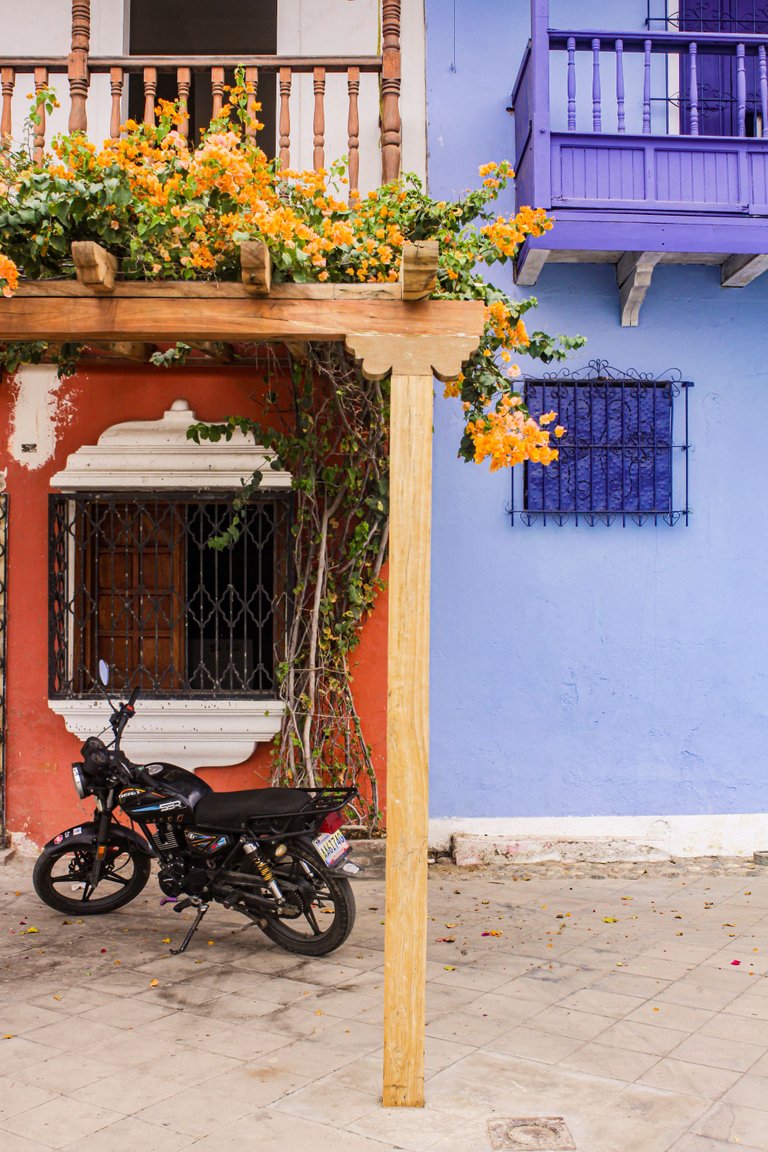
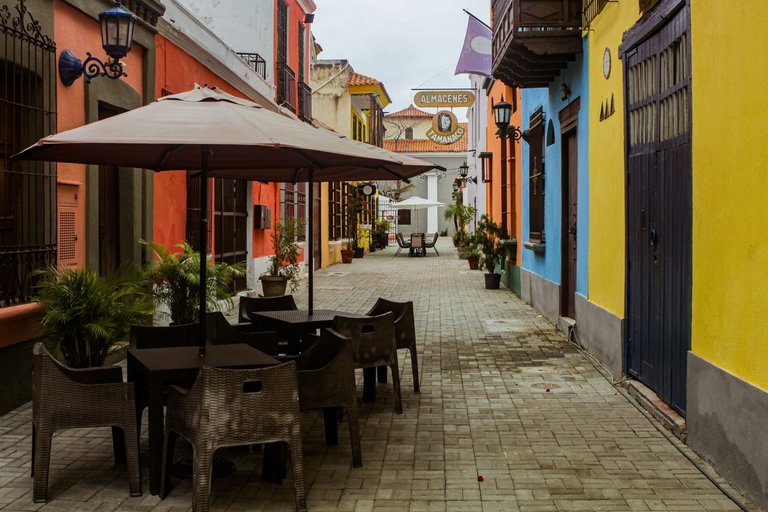
ENGLISH
Puerto Cabello is a city located in the Venezuelan Caribbean Sea, in the north of South America. It is a place with a lot of history, as some people said when they saw me with my camera, excitedly taking pictures of the architecture of the place.
Not only the porteños, as the locals are known, think that there is a lot to know thanks to important historical events for the country. The years are also witnesses, because since the 18th century, when Spain still ruled what is now known as Venezuela, the port suffered constant attacks by pirates and other enemy powers of the Spanish empire, which forced it to fortify the surroundings.
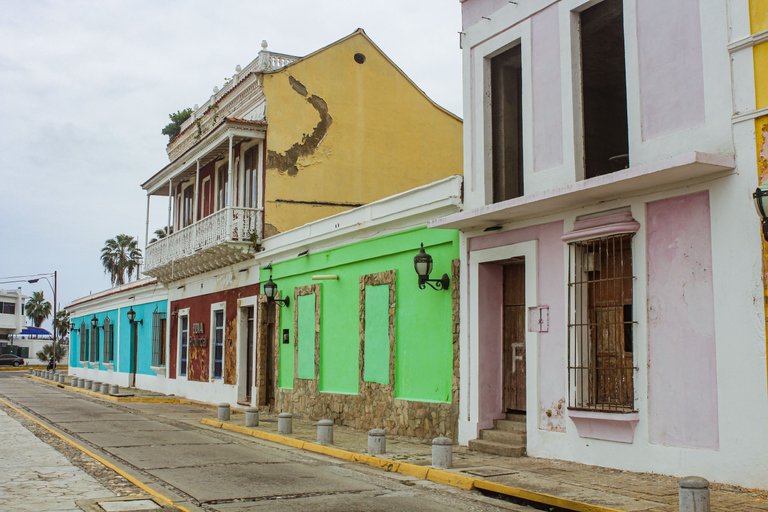
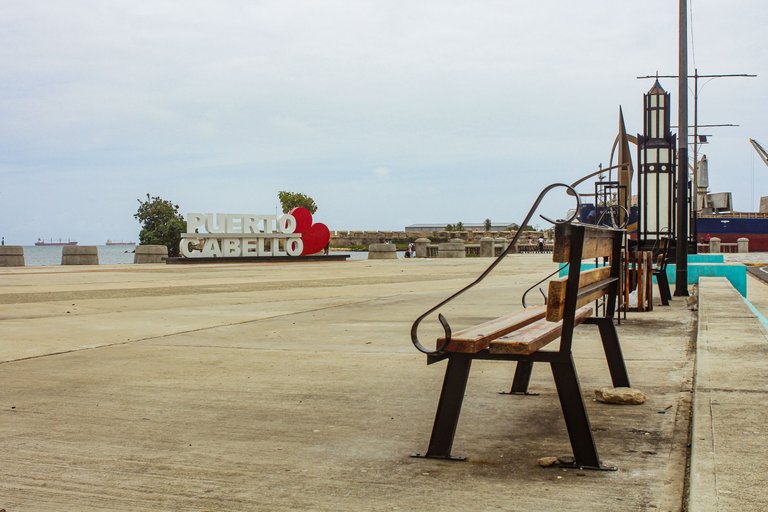
The malecon, which was built much later, in the 50s, is a vestige of the fortification, and also a sample of how the place has evolved over the centuries.
The architecture is a mixture of colonial and modern times.
modern. There are modern shops selling seafood, to old churches worn out by time, as well as the streets.
The famous lanceros alley, where picturesque and exotic buildings rest, classic of the Caribbean cities that were once dominated by the were once dominated by the Spanish Empire. The smell of history is undeniable, which can be translated into wood and walls that once housed colonial life.
In each building awaits a whole history, especially those of the Callejón de los lanceros, so called because General José Antonio Páez, a Venezuelan hero who fought against the Spanish Empire, paraded there with his army of lancers after winning an important battle that allowed the patriots to gain ground in Puerto Cabello.
Modernity reminds you that you are not in the 18th century. An example is not only the motorcycles, which abound on street corners everywhere, but also the fast food and gourmet ice cream parlors, with the motivation to encourage tourism in the city, which years ago was forgotten not only by politicians, but also by the tourists themselves, who even feared for their safety, since they were afraid for their own safety, since crime used to plague the surrounding area.
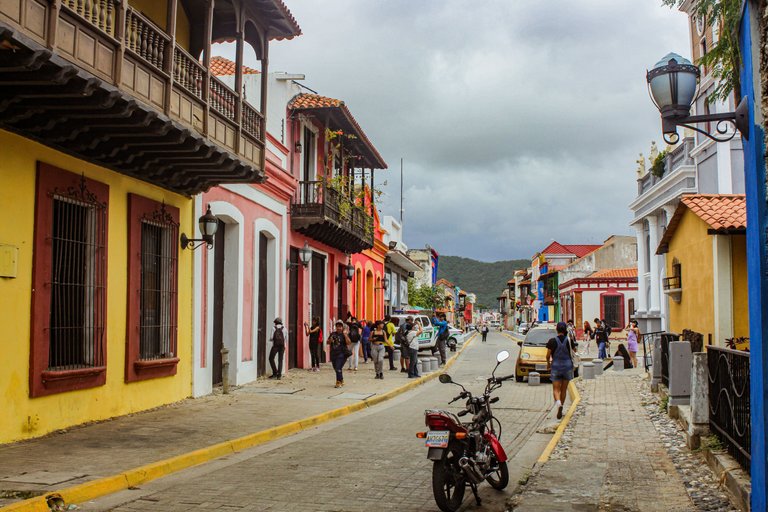
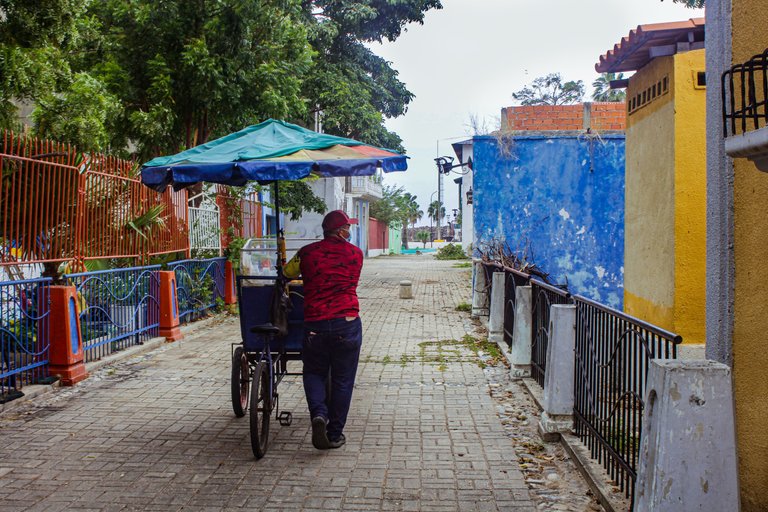
Now the atmosphere is different. In addition to restaurants and other types of locals, many of the old buildings, both colonial, republican and neoclassical, are also machine shops, and where you can see the contrast between social inequality and emerging rampant luxury. In another post I plan to dedicate myself to record the old houses, where people live in vulnerable conditions.
Puerto Cabello is an ideal place not only to take pictures, but also to contemplate an architecture rich in history, and especially in diversity. The sea, like a giant and eternal witness of everything that happens, is also a photogenic companion that awaits the return of the tourists, as well as the lovers of photography and architecture, without them it would not be possible to see it.
without them it would not be possible to see the sea.
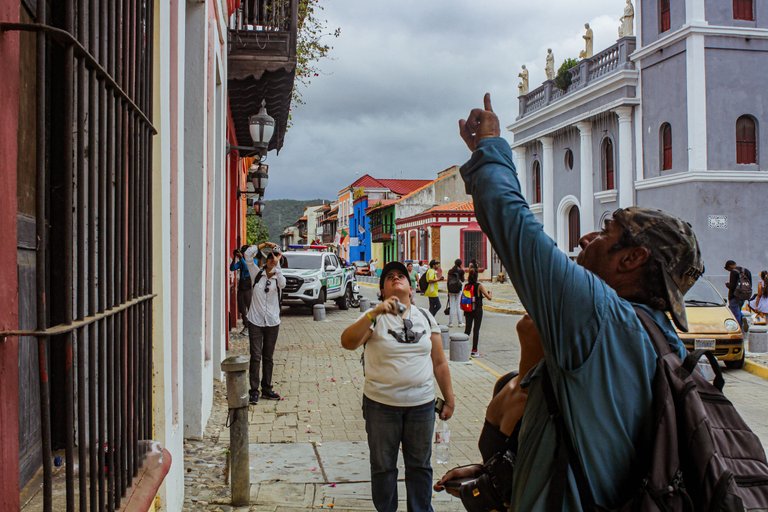
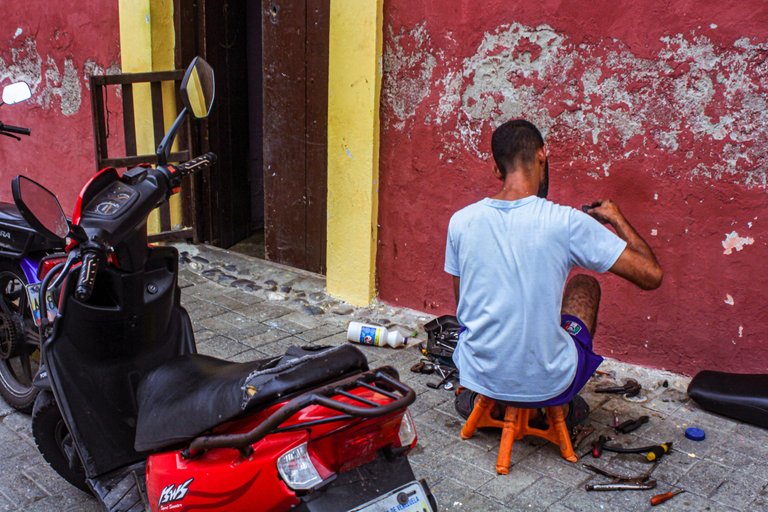
ESPAÑOL
Puerto Cabello es una ciudad que está ubicada en el mar caribe venezolano, al norte de Sudamérica. Es un sitio con mucha historia, dicen los habitantes al verme con la cámara, fascinado con la arquitectura del lugar.
No solo los porteños, como se les conoce a lugareños, piensan que hay mucho por conocer gracias a eventos históricos importantes para el país. Los años también son testigos, porque desde siglo XVIII, cuando España todavía gobernaba lo que hoy se conoce como Venezuela, el puerto sufría constantes ataques por parte de piratas y amadas de otras potencias enemigas del imperio español, lo que le obligó a fortificar los alrededores.
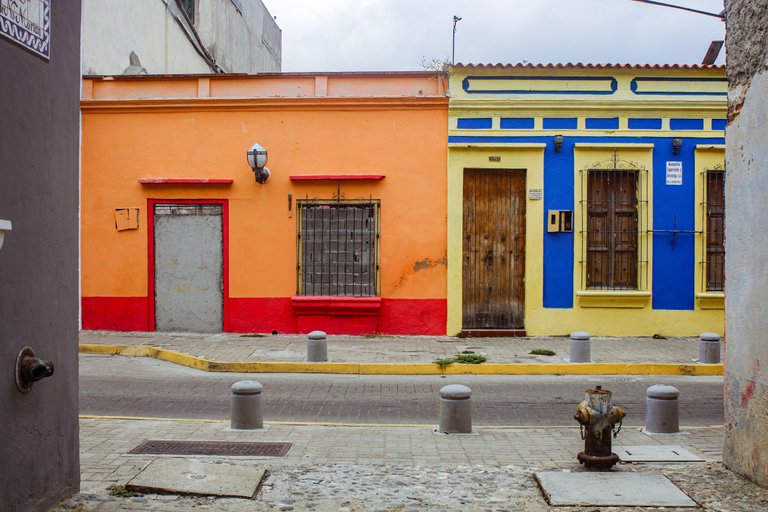
El malecón, que fue construido mucho después, en la década del 50 en el siglo XX, es un vestigio de la fortificación, y también una muestra de cómo ha evolucionado el lugar a lo largo de los siglos.
La arquitectura es una mezcla de la época colonial con la
moderna. Se encuentran modernos locales que venden comida marina, hasta viejas iglesias desgastadas por el tiempo, así como las calles. El famoso callejón de los lanceros, donde reposan edificaciones pintorescas y exóticas, clásicas de las ciudades caribeñas que
fueron dominadas un tiempo atrás por el Imperio Español. El olor a historia es
indiscutible, que puede traducirse a madera y a paredes que en otro tiempo albergaron la vida colonial.
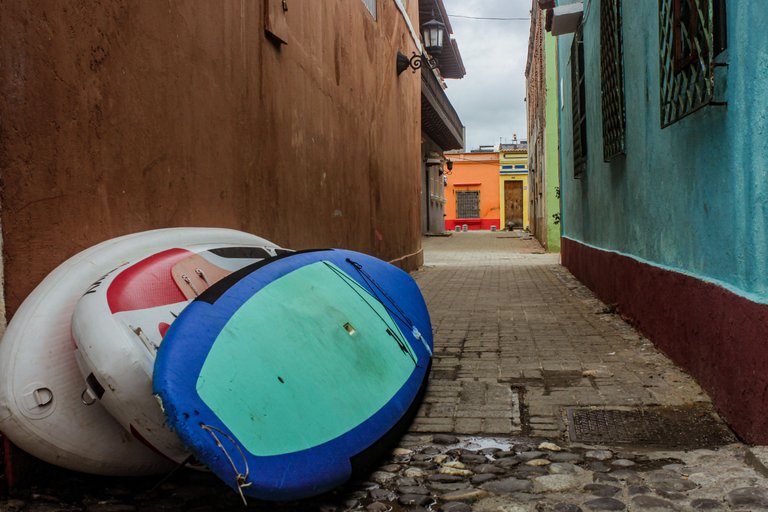
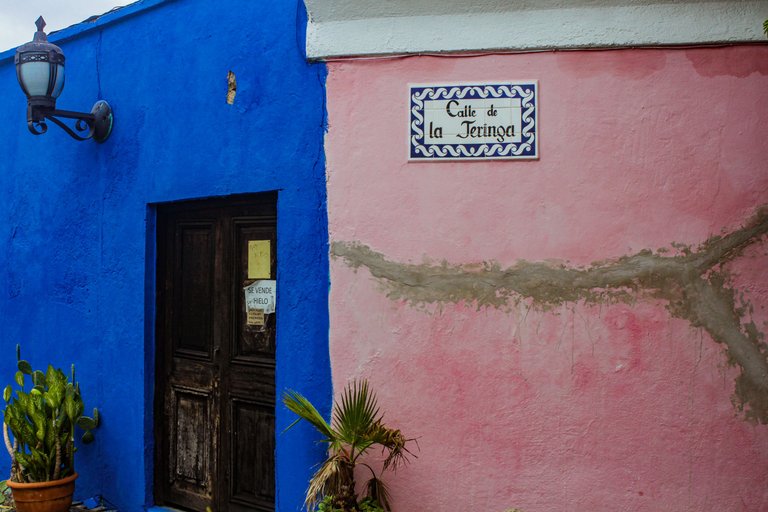
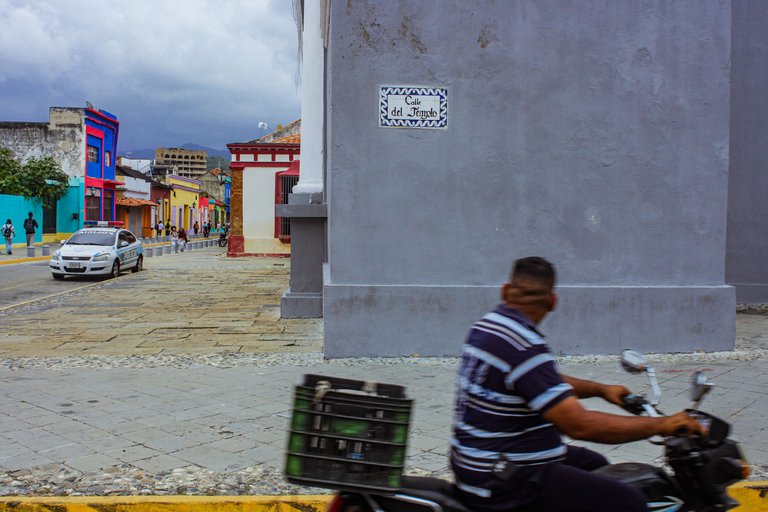
En cada edificación aguarda toda una historia, especialmente las del Callejón de los lanceros, llamada así porque el general José Antonio Páez, un prócer venezolano que luchó contra el imperio español, desfiló allí junto a su ejército de lanceros luego de ganar una importante batalla que permitió a los patriotas ganar terreno en Puerto Cabello.
La modernidad te hace recordar que no estás en el siglo XVIII. Una muestra no son solo las motos, que abundan en esquinas por doquier, sino los locales de comida rápida y heladerías al mejor estilo gourmet, esto con la motivación de incentivar el turismo en la ciudad, que años atrás estaba en el olvido no solo por los políticos, sino por los mismos turistas, quienes
incluso temían por su seguridad, dado que la delincuencia solía azotar los alrededores.
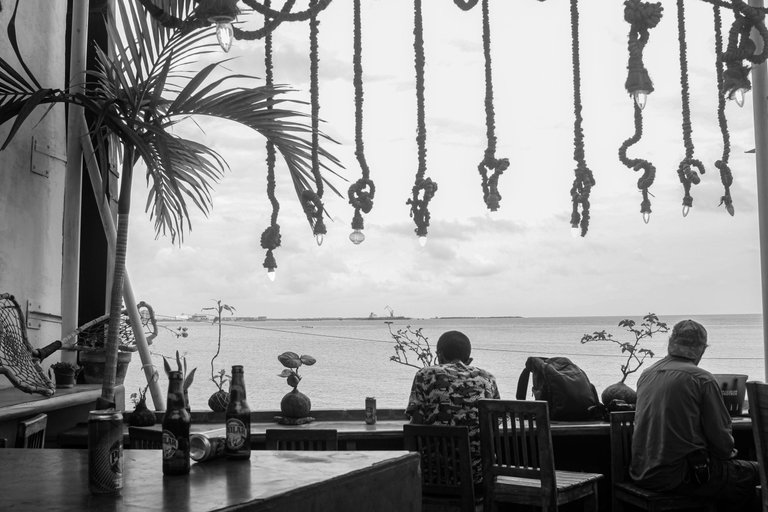
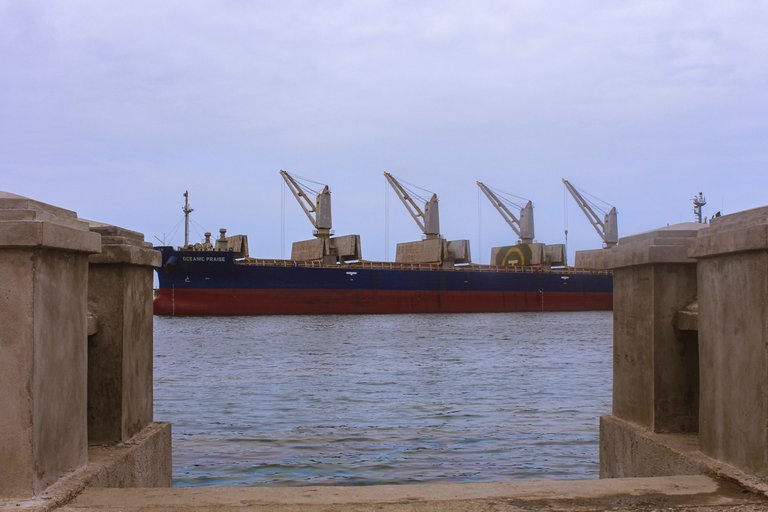
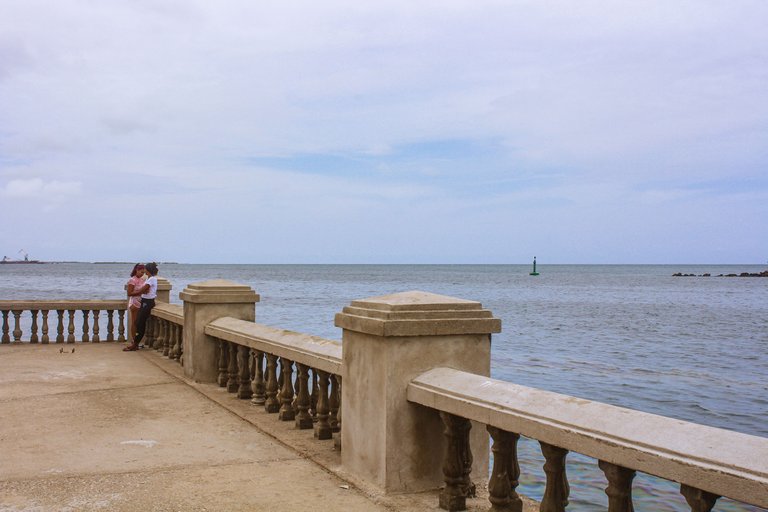
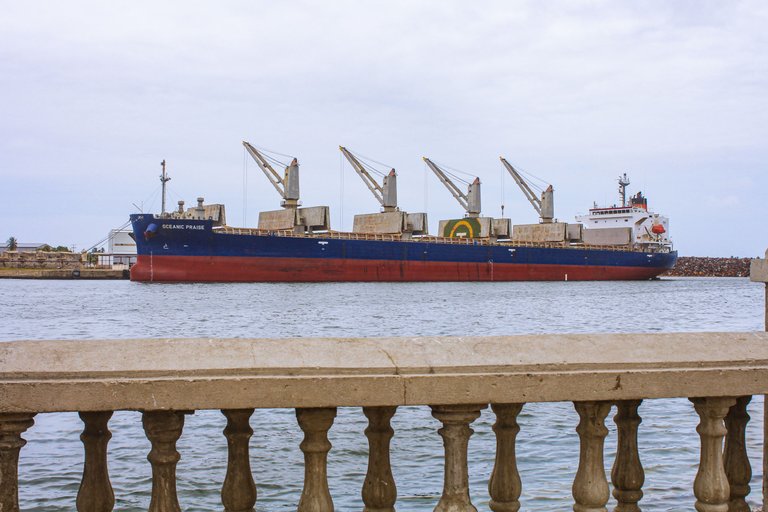
Ahora el ambiente es distinto. Además de restaurantes y otros tipos de locales, muchas de las antiguas edificaciones, tanto coloniales, como republicanas y neoclásicas, también son talleres de mecánica, y donde se ve el contraste entre la desigualdad social y el lujo rampante emergente. En otro post pienso dedicarme a registrar las casas antiguas, donde viven personas en condiciones vulnerables, y cómo esta situación cambia el panorama.
Puerto Cabello es un lugar ideal no solo para tomar fotografías, sino para contemplar una arquitectura rica en historia, y en especial, de diversidad. El mar, como un gigante y eterno testigo de todo lo que transcurre, es un acompañante también fotogénico que espera el regreso de los turistas, así como de los amantes de la fotografía y arquitectura, que sin
ellos no se pudiera visualizar tanto la historia, así como el estilo de las ciudades, debido a que son un reflejo cultural de cada rincón.
Bibliographic source Link
achitecture
urbanphotography
urbanphotographer
history
spanish
venezuela
photography
architecturephotography
architecturepicture
0
0
0.000
Congratulations @laimagenhabla! You have completed the following achievement on the Hive blockchain And have been rewarded with New badge(s)
Your next target is to reach 400 replies.
You can view your badges on your board and compare yourself to others in the Ranking
If you no longer want to receive notifications, reply to this comment with the word
STOPCheck out our last posts:
Support the HiveBuzz project. Vote for our proposal!
Undoubtedly, Puerto Cabello has an important architectural and historical heritage of Venezuela, where some of these very valuable and important buildings are still preserved.
!discovery 40
!VSC
@wilfredocav has sent VSC to @laimagenhabla
This post was rewarded with 0.1 VSC to support your work.
Join our photography communityVisual Shots
Check here to view or trade VSC Tokens
Be part of our Curation Trail
@wilfredocav ha enviado VSC a @laimagenhabla
Éste post fue recompensado con 0.1 VSC para apoyar tu trabajo.
Únete a nuestra comunidad de fotografía Visual Shots
Consulte aquí para ver o intercambiar VSC Tokens
Se parte de nuestro Trail de Curación
This post was shared and voted inside the discord by the curators team of discovery-it
Join our Community and follow our Curation Trail
Discovery-it is also a Witness, vote for us here
Delegate to us for passive income. Check our 80% fee-back Program
https://twitter.com/1276987315831934976/status/1649075872094101506
https://twitter.com/1647701001879830528/status/1649464560288690176
https://twitter.com/1647293154322776066/status/1650476809497231360
The rewards earned on this comment will go directly to the people( @wilfredocav, @muneeb66, @zeshan120 ) sharing the post on Twitter as long as they are registered with @poshtoken. Sign up at https://hiveposh.com.
Greetings from here. I really liked the pictures you have taken, because if there is something that reminds me a lot of Puerto Cabello besides the sea, it is the Calle de los Lanceros. Picturesque houses, eclectic styles and a lot of history behind them.
Yes, it is a special place :D
it seems that the area has a lot of color in every corner of the house. So good as a place for tourism.
It is. Thank you!
Wooow what a beautiful timecapsule! Hopefully these buildings will stand long as a testimony of time, in western europe most old buildings have been torn down.. they want the new generations to forget the grandeur of architecture that's certain..
Stunning pictures, I especially admire the first one and the last one; very eye-catching 😍
Oh wait, there were more in the español section, those are fabulous too! The black and white with the knots and the Calle de la Teringa, as well as the first picture in the spanish part WOW!!! Thanks for this little visual voyage!
Thank you so much. I hope you can visit this place someday :D
Hopefully, at least in the inner realms now thanks to your visuals :)